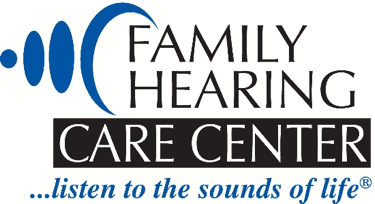
Addressing Hearing Loss May Improve Care of Older Adults
Hearing loss is a medical condition that disproportionately impacts older adults. Half of all adults, ages 75 and older, have impaired hearing. Hearing loss not only impacts hearing and communication but also care. Studies show that adults with hearing loss are more likely to be readmitted into the hospital. This highlights the importance of comprehensively addressing hearing loss which can significantly improve the care that older adults receive.
Link Between Hearing Loss and Hospital Readmission
One of the ways that hearing loss can impact care is by leading to hospital readmission. Extensive research shows that hearing loss can increase the risk of hospital readmission. The following studies investigate this link:
- New York University Study: researchers at NYU evaluated data on a total of 4,436 people (ages 65 and older) who were identified as experiencing communication with healthcare providers due to hearing loss. This data was compared to people who did not report communication difficulties with healthcare professionals. Researchers found that people with hearing loss were 32% more likely to be readmitted within 30 days.
- Johns Hopkins University Study: this study involved collecting and assessing the healthcare claims of 77,000 people with symptoms of untreated hearing loss. After analyzing this data, researchers found that patients with hearing loss were 44% more likely to be readmitted to the hospital within 30 days compared to patients without hearing loss over a 10 year period.
These studies highlight that hearing loss can increase the risk of hospital readmission. This can have various outcomes including impacting health as well as increasing healthcare costs. The Johns Hopkins University study revealed that over 10 years, the total cost associated with hospital readmission for people with hearing loss was $22,434 for each patient.
Impact of Healthcare Settings on People with Hearing Loss
There are various ways that healthcare systems and environments can negatively affect people with hearing loss. This includes:
- Loud noise exposure: hospital, clinic, and other healthcare settings can be environments that have lots of background noise. From machines, to conversations in the lobby, doors opening and closing, names being called etc. these environments often contain background noise that makes it harder to hear.
- Active environment: healthcare settings, especially in the case of an emergency, can also be chaotic and busy. People may be asking questions quickly and moving about rapidly. This not only can be stressful but also make it harder to hear.
- Lack of understanding: another challenge is that people in healthcare environments may not be aware of patients’ hearing status. They can also lack understanding of how to communicate effectively with people who have hearing loss.
These realities can contribute to hearing challenges in healthcare settings. This can significantly affect quality of care and experience. It can contribute to miscommunication, not hearing important information related to health, frustrating interactions etc. This can directly impact one’s health, highlighting the importance of addressing hearing loss in healthcare settings.
Addressing Hearing Loss Improves Care
There are simple ways that hearing loss can be addressed to improve care in healthcare environments. Practicing the following strategies can significantly support hearing and communication:
- Ask Questions: the first step towards providing quality care is knowing a person’s hearing needs. You can learn this by simply asking if a patient has hearing loss as well as asking what their hearing needs are. This creates space for a productive conversation about hearing needs and what you can do to meet those hearing needs. You are able to ask follow-up questions and learn more about how you can effectively communicate with patients who have hearing loss.
- Utilize Resources: there are various resources on hearing loss that are specifically developed for healthcare providers. An example is the Communication Access Plan (CAP) that was created by the Hearing Loss Association of America (HLAA). The CAP is a form that helps healthcare providers assess the needs of their patients with hearing loss.
- Use Communication Strategies: in addition to asking the patient how their hearing needs can be met, you can also use the following communication strategies: reduce background noise, minimize visual stimuli, maintain visibility, speak in a natural tone, make sure the room is well lit, and use visual aids.
These strategies can help facilitate effective communication which makes quality care more possible. Contact us today to learn more!
